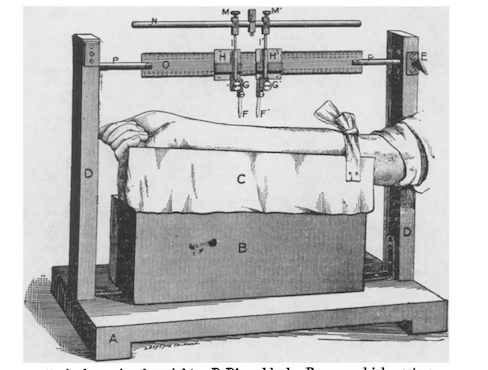Erica Fretwell
Short Biography
Erica Fretwell is associate professor of English at the University at Albany, State University of New York (SUNY), where she teaches nineteenth-century U.S. literature, critical race studies, the history of science, and affect studies. She is the author of Sensory Experiments: Psychophysics, Race, and the Aesthetics of Feeling (2020) and is a coeditor of the Palgrave Handbook of Twentieth and Twenty-first Century Literature and Science (2020). Her essays have appeared in numerous journals and edited volumes, including Timelines of American Literature, The Cambridge Companion to Literature and Food, and The New Walt Whitman Studies. She has articles in Al Jazeera and Avidly. Her current project, “Out of Print: Haptic Literature in the Age of Craft,” revisits the nineteenth century as a “haptic episteme” through the object-oriented pedagogies, handicraft practices, and tactile literacies that revalued embodied presence as a vector of everyday knowing.

Panel Abstract
Sensory Experiments in Nineteenth Century America
How does the racial history of psychology bear on media history? The immediate precursor to “modern” Wundtian psychology, psychophysics was the experimental science of sense experience. Although widely popular in its moment, today psychophysics has been largely forgotten – remembered, if at all, as a footnote in the history of media and technology, as something of the “prehistory” of psychometrics. As practiced by Gustav Fechner, Hermann von Helmholtz, and E.H. Weber, however, psychophysics was more than a strictly positivist science of mind: it crisscrossed empiricism, metaphysics, and aesthetics in its effort to answer philosophical questions in the laboratory.
In this paper I will discuss the centrality of psychophysics to the formation of the “eugenic Atlantic” (c.f. Mitchell and Snyder) in the nineteenth century United States. The legacy of psychophysics is most evident in the persistence of “sense training” or “sensitivity training”: the idea that the training of perceptual sensitivity (such as distinguishing slight changes in color, texture, or weight) through rigorous exercises would not simply cultivate the individual but facilitate racial perfection. This cultural preoccupation with the minutiae of mental experience locates psychophysics at the nexus of biopolitics and aesthetics, where the lives of people and populations are accorded value based on their affective capacities for making micro-judgments. To what extent does the Foucauldian technology of sensitivity training rewire material technologies like photography and film? What does it mean to understand racial difference as elemental to, rather than an ancillary feature of, consciousness? How might sensory studies attune us to the racial preconditions of media, both past and present?
Erica Fretwell speaks in Panel I: Other(ed) Sensibilities. Revisiting the Sensory Politics of Racialization by Anja Breljak and Vanessa Oberin.